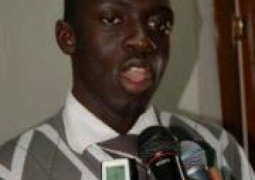On Sept. 17, 2016, the United States commemorates the 229th anniversary of its Constitution, a document that provides a model for countries around the world. Among the document’s 27 amendments, the 22nd says that “no person shall be elected to the office of the president more than twice […].”
Presidential term limits have also been a common feature of African constitutions — but constitutional amendments have almost exclusively extended presidential term limits. Since the 1990s, at least 30 presidents in sub-Saharan African nations have tried to extend their regimes by tweaking constitutional term limits.
These “constitutional coups” are a way to cement presidential power — and do so with the appearance of legality. While regional bodies such as the Economic Community of West African States (ECOWAS) and the African Union (AU) are facing growing pressures to prevent third terms, member states remain strongly opposed to formal bans.
Between 2005 and 2015, presidents in Senegal, Burkina Faso, Congo Republic, Congo, Uganda and Rwanda attempted to extend their terms in office through constitutional or other legal amendments.
Governments backed up these constitutional changes with force on several occasions, along with human rights abuses. In Congo, the January 2014 demonstrations followed President Joseph Kabila’s attempt to modify the electoral laws and to stay in power beyond the two terms outlined in the country’s constitution. Police forces cracked down on demonstrators, leaving 27 dead.
After the protests, the Congolese parliament eventually removed the controversial article that would have allowed President Kabila to remain in power beyond December this year, the end of his second term. Kabila assumed the presidency in 2001 at the age of 29 after his father was assassinated. After the constitution was amended to allow presidential candidates under age 35, he was reelected in 2006, and again in 2011. The presidential elections scheduled for 2016 are likely to be postponed indefinitely, posing risks for further instability in the country.
In 2015, President Pierre Nkurunziza of Burundi won reelection to a third term, despite a constitutional two-term limit. Protesters clashed with government forces, while opposition candidates boycotted the vote. Nkurunziza claimed the country’s legislature had elected him to his first term as president, making him eligible to run for two additional terms.
But some countries are fighting this trend, using the very same weapons — constitutional referendums. In 2015, citizens of the Central African Republic overwhelmingly backed a constitutional referendum aimed at ending nearly three years of political instability. The amended constitution limits the power of the president and increases that of the parliament — and establishes a Special Criminal Court to try war crimes and crimes against humanity committed in the country since 2003.
Senegal’s successful constitutional referendum in March reduced presidential terms from seven years to five years. Other measures reaffirmed the role of opposition parties and local officials.
Other African countries such as Mali and Benin are negotiating new constitutions. Mali will soon revise its constitution to incorporate provisions of the 2015 Algiers Peace Agreement signed between the government and former rebel groups. Since July this year, a group of experts has been reviewing the peace agreement to figure out which clauses to integrate into the Malian constitution.
In Benin, newly elected President Patrice Talon is suggesting that the country’s constitution be revised to limit presidential terms to only one. However, in October 2011, the constitutional court of Benin ruled that presidential term limits were unchangeable. Therefore, Talon’s constitutional reform project might be moot.
These referendums are good for democratic consolidation, the process by which new democracies establish strong foundations to prevent a slide back to autocratic rule. They are also crucial for good governance, long-term stability and rule of law.
Recent patterns in African constitutional referendums suggest that as much as military coups are becoming passe, constitutional coups soon might also become outdated. In sub-Saharan Africa, constitutions in many countries are slowly becoming binding documents that limit presidential powers — and boost democracy and the rule of law.
Guest editorial
“Most of wars or military coups or invasions are done in the name of democracy against democracy.”
Eduardo Galeano


